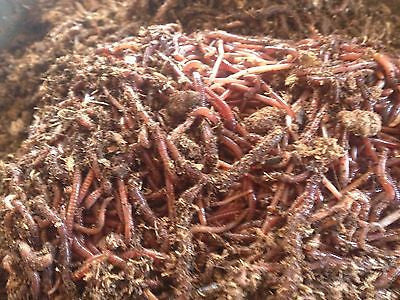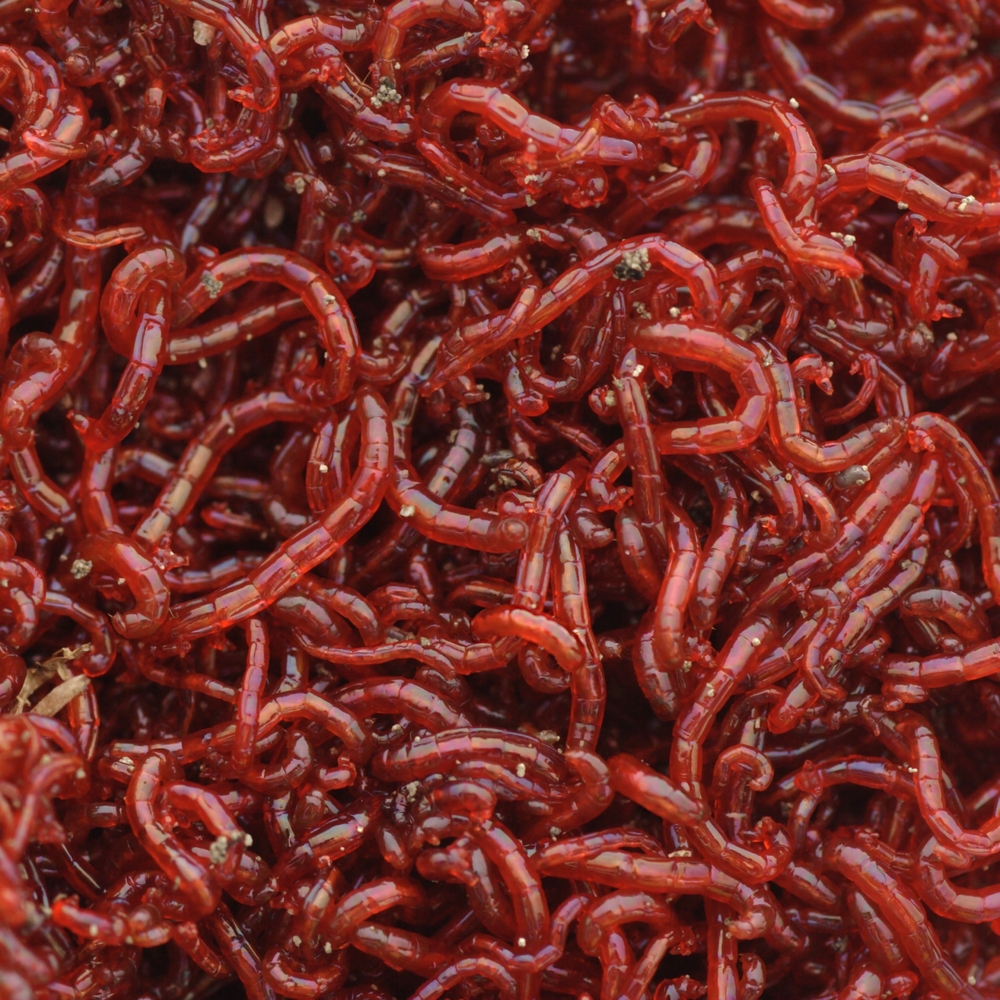Eco-friendly red worms: How to set up a worm farm
The Ultimate Overview to Red Wigglers for Healthy And Balanced Soil
The duty of red wigglers, clinically understood as Eisenia fetida, in dirt health is a subject of boosting interest among lasting horticulture fanatics and farming experts alike. These microorganisms not only reuse organic waste but also enhance dirt fertility through their nutrient-rich spreadings. Comprehending exactly how to properly grow and make use of these worms can transform your gardening methods. The process of setting up a conducive atmosphere for these beneficial creatures and optimizing their payment to soil health and wellness includes several crucial considerations that merit closer assessment. What are the important actions to guarantee a flourishing worm populace?
What Are Red Wigglers?
Red wigglers, scientifically called Eisenia fetida, play a critical duty in composting and soil health. These earthworms are especially well-suited for vermicomposting, a procedure that uses their all-natural actions to break down raw material efficiently. Unlike various other earthworm types, red wigglers flourish in abundant natural environments, making them perfect for compost containers and worm ranches.
Gauging about 3 to 4 inches in length, red wigglers have a distinctive reddish-brown pigmentation and a fractional body that aids in their movement through rotting products. They are detritivores, implying they eat decomposing organic materials, including kitchen area scraps, plant particles, and paper items. red worms. Through their intake of these products, they assist damage down complex substances, turning them right into nutrient-rich castings that improve soil high quality
Red wigglers are likewise respected breeders, efficient in reproducing promptly under optimal conditions. Their flexibility to numerous settings enables them to thrive in a series of composting systems. By recognizing the biology and environmental importance of red wigglers, garden enthusiasts and farmers can harness their capabilities to improve soil health and wellness and promote lasting practices in agriculture.

Benefits of Red Wigglers
The many advantages of incorporating red wigglers right into composting practices dramatically improve dirt health and wellness and fertility. These earthworms, clinically referred to as Eisenia fetida, stand out at damaging down natural matter, changing kitchen scraps and lawn waste right into nutrient-rich vermicompost. This procedure not only increases decomposition but also improves the dirt with important nutrients such as nitrogen, phosphorus, and potassium.
In addition, red wigglers improve dirt framework by developing aggregates that assist in oygenation and water retention. Their burrowing activities promote a well-aerated environment, enabling roots to access oxygen more effectively. This enhanced aeration additionally fosters advantageous microbial activity, which is essential for vitamins and mineral cycling and total soil vigor.
Along with boosting dirt make-up and framework, red wigglers contribute to pest management. Their visibility in the dirt helps subdue harmful nematodes and various other pests, minimizing the need for chemical treatments. The application of vermicompost leads to enhanced plant durability against illness, advertising much healthier growth.
Establishing Up a Worm Bin
Establishing a worm bin can be a rewarding undertaking for those aiming to enhance their composting initiatives. The very first step is selecting a proper container, ideally constructed from plastic or wood, with a capacity of at the very least 10 gallons to fit the worms and their food. Make sure the container has ample ventilation-- drill little holes in the lid and sides to promote air movement while stopping excess dampness accumulation.

Introduce the red wigglers right into the bin, permitting them to adapt to their brand-new environment. Preferably, begin with a population of regarding one extra pound of worms per square foot of area. Place the worm bin in a place that maintains a steady temperature level, preferably in between 55 ° F and 77 ° F. With these foundational actions, your worm bin will certainly be all set to thrive in the pursuit of healthy soil.
(red wiggler earthworms for sale)
Feeding Your Red Wigglers
When it involves nurturing red wigglers, understanding their nutritional demands is important for keeping a healthy worm container. These worms prosper on a varied diet regimen, largely made up of raw material. Suitable food resources consist of vegetables and fruit scraps, coffee premises, crushed eggshells, and shredded paper or cardboard. Nonetheless, it is crucial to prevent feeding them citrus fruits, onions, and garlic, as these can be detrimental to their health and wellness.
Part control is crucial; overfeeding can result in odor problems and draw in parasites. A good general rule is to provide food that is approximately equal to the weight of the worms in the container every week. Display the usage price and adjust feeding amounts as necessary.
To promote a balanced diet regimen, objective to offer a mix of nitrogen-rich eco-friendlies, such as vegetable peels, and carbon-rich browns, such as dried out leaves or cardboard. In addition, keeping proper wetness levels is vital-- food scraps need to be moist yet not soggy - red worms. By carefully handling their diet and atmosphere, you will certainly guarantee that your red wigglers continue to be healthy and effective, adding efficiently to the composting process
Making Use Of Worm Castings in Soil
Incorporating worm spreadings into dirt can significantly boost its health and fertility. Worm spreadings, likewise referred to as vermicompost, are an abundant resource of nutrients, including nitrogen, phosphorus, and potassium, important for plant growth. When contributed to dirt, these spreadings enhance its framework by increasing aeration and improving wetness retention, which is particularly beneficial in deserts.
In addition, worm spreadings introduce helpful microorganisms that promote a healthy and balanced soil ecological community (red worms). These bacteria aid in breaking down raw material, making nutrients quicker offered to plants. The presence of these microbes additionally assists suppress soil-borne conditions, reducing the demand for chemical fertilizers and chemicals
To make use of worm castings efficiently, mix them into the top couple of inches of soil prior to growing or use them as a leading clothing around developed plants. An advised application rate has to do with 10-20% castings blended with soil to enhance nutrition schedule without frustrating the plants.
Conclusion
In verdict, red wigglers, or you can check here Eisenia fetida, play a crucial role in enhancing soil health and wellness through their vermicomposting activities. Eventually, the combination of red wigglers into soil administration methods advertises sustainable agriculture by lowering dependency on chemical fertilizers and promoting beneficial microbial activity.